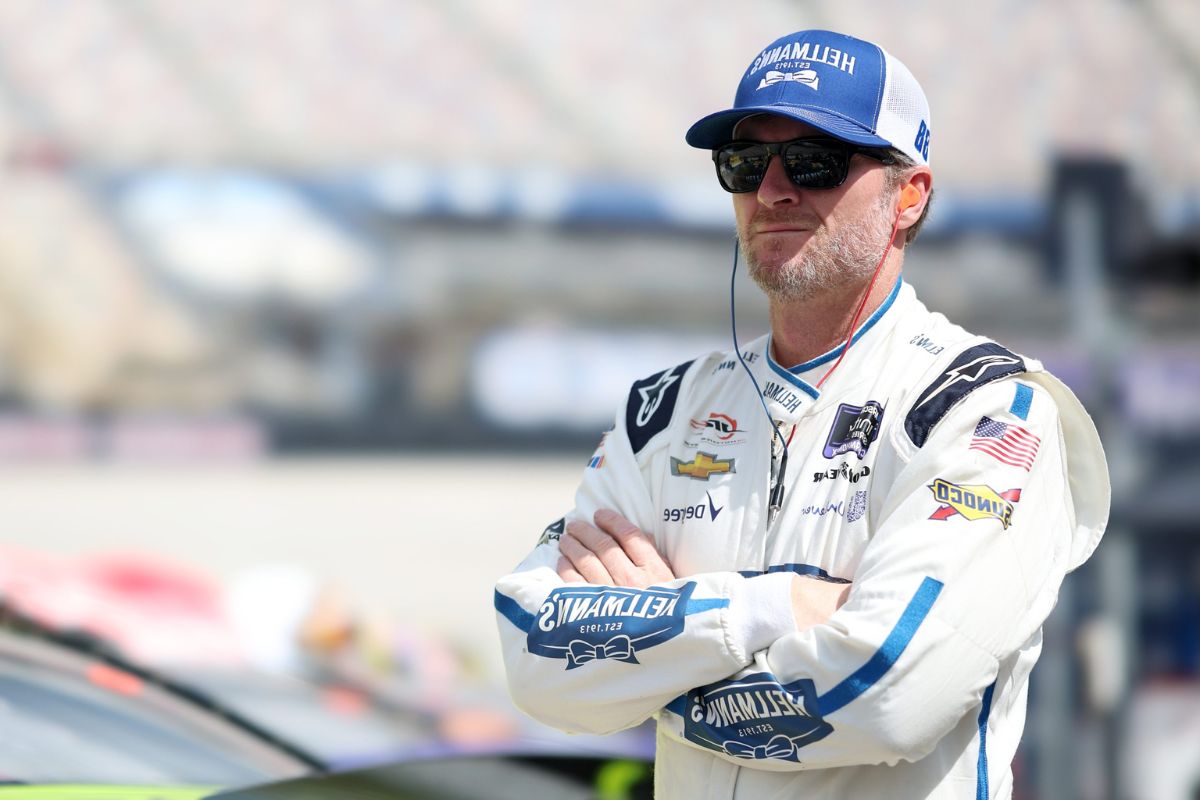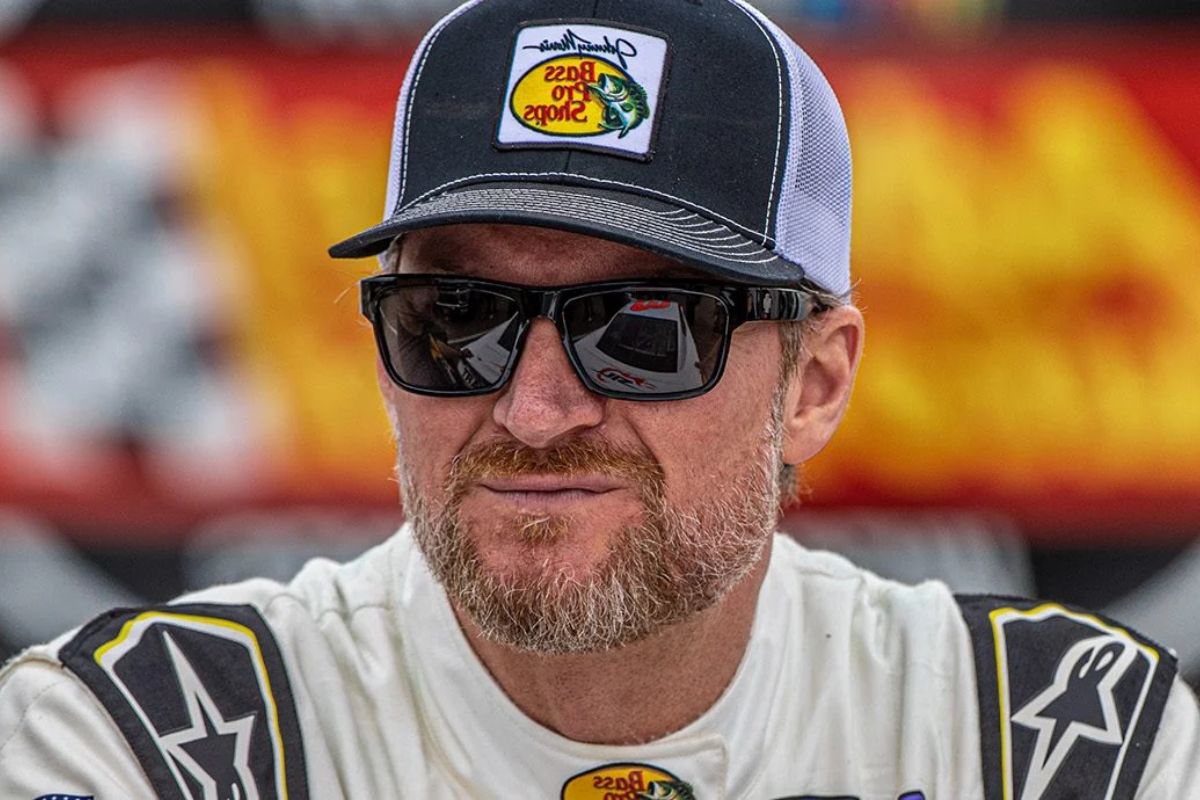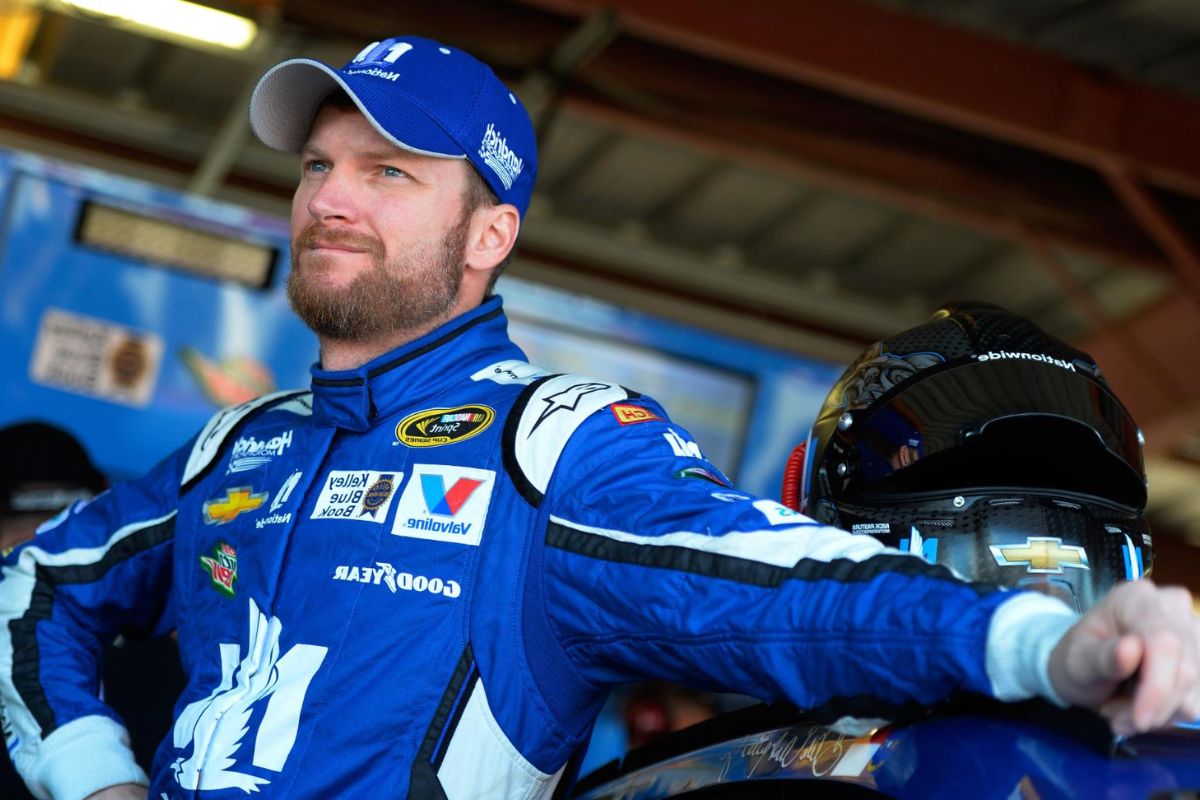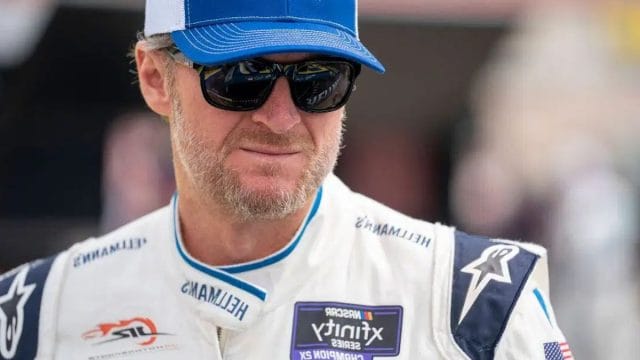2004 Daytona 500 Drama: The 2004 Daytona 500 marked a pivotal moment in NASCAR history, not only for the thrilling race it delivered but also for the legendary call made by broadcasting icon Allen Bestwick.
As the high-stakes event unfolded, Bestwick’s voice echoed through millions of screens, capturing the essence of the drama that was about to unfold on the track. His words, carefully chosen and delivered with precision, have since become etched in the annals of NASCAR lore.
This particular race not only showcased the raw talent of the drivers but also highlighted Bestwick’s unparalleled ability to convey the intensity and emotion of the sport to viewers worldwide.
Key Takeaways
- Bestwick’s profound commentary immortalized the drama of the 2004 Daytona 500.
- Emotional depth captured in contrasting Dale Earnhardt Jr. victories showcased resilience.
- President George W. Bush’s involvement added a unique blend of politics to the race kickoff.
- Bestwick’s journey in NASCAR broadcasting set a high standard for immersive storytelling.
Broadcasting Icons: Allen Bestwick and the Daytona Duels
In the realm of televised motorsports coverage, Allen Bestwick’s presence during the Daytona Duels has consistently elevated the viewing experience for audiences worldwide. Bestwick’s insightful commentary and deep understanding of the sport have captivated viewers, providing them with a comprehensive analysis of the races unfolding on the track. His ability to convey the excitement, strategy, and drama of the Daytona Duels has made him a broadcasting icon in the world of NASCAR.
Bestwick’s connection to the late Ken Squier, another legendary figure in motorsports broadcasting, further enhances his credibility and expertise. Drawing on his experience and knowledge, Bestwick brings a unique perspective to the Daytona Duels, enriching the audience’s understanding of the races and the drivers competing in them.
Through Bestwick’s coverage of Dale Earnhardt Jr.’s victories in the Daytona Duels, viewers have gained valuable insights into the strategies and skills employed by the legendary driver. Bestwick’s commentary during the 2001 and 2004 Daytona races has become iconic, immortalizing these moments in NASCAR history.

Behind the Mic: Bestwick’s Journey in NASCAR Broadcasting”
Building on his established reputation as a broadcasting icon in NASCAR, Allen Bestwick’s journey in NASCAR broadcasting showcases a remarkable evolution from his roots as a radio reporter to his current position at NBC, embodying a legacy of excellence in motorsports coverage. Bestwick’s career progression mirrors a path of dedication and passion for the sport, standing in the footsteps of mentors like the legendary Ken Squier.
Transitioning from radio to television, Bestwick has shouldered unique responsibilities in broadcasting major events, including the Daytona 500, with poise and expertise. His ability to capture the essence of NASCAR races and convey the excitement to viewers has solidified his status as one of the premier voices in the industry. Bestwick’s attention to detail, deep knowledge of the sport, and engaging commentary have endeared him to fans and added a layer of depth to the NASCAR broadcasting experience.
Through his journey, Bestwick has left an indelible mark on NASCAR broadcasting, setting a high standard for excellence in the field.
NASCAR’s Historical Crossroads: 2004 Daytona 500
Marking a pivotal moment in NASCAR’s history, the 2004 Daytona 500 stood as a defining race that introduced significant changes to the sport. This race not only showcased thrilling on-track action but also set the stage for transformative developments within NASCAR. Here are four key aspects that made the 2004 Daytona 500 a historical crossroads for the sport:
- Introduction of Nextel as the Cup Series sponsor: The 2004 Daytona 500 marked the beginning of a new era with Nextel taking over as the title sponsor of NASCAR’s premier series, replacing Winston. This change brought a fresh perspective and new energy to the sport.
- The decision to start the ‘Chase for the Championship’ in 2004: NASCAR introduced the playoff-style format known as the ‘Chase for the Championship’ in 2004, adding a new layer of excitement and competitiveness to the season.
- Competitive racing and strategic maneuvers: The 2004 Daytona 500 witnessed intense competition among drivers, with strategic moves and daring passes keeping fans on the edge of their seats.
- Impact on NASCAR’s future direction: The outcomes of the 2004 Daytona 500 paved the way for NASCAR’s future direction, shaping rules, regulations, and the overall fan experience for years to come.

Emotional Rollercoaster: Contrasting 2001 and 2004 Daytona Wins
The emotional spectrum surrounding the victories at the Daytona 500 in 2001 and 2004 offers a compelling narrative of triumph and tribulation in NASCAR’s history. In 2001, the Daytona 500 win by Dale Earnhardt Jr. was bittersweet, coming just a day after the tragic loss of his father, Dale Earnhardt Sr. The mix of joy and sadness was palpable, creating a poignant moment in racing history. Bestwick’s recollection of the aftermath of that race reflects the somber atmosphere juxtaposed with the jubilation of victory.
Contrastingly, the 2004 Daytona 500 win by Dale Earnhardt Jr. brought a sense of redemption and closure. The emotional rollercoaster of emotions from 2001 seemed to find a resolution as Earnhardt Jr. crossed the finish line, securing a victory that honored his father’s legacy while also marking a new chapter in his career. Bestwick’s commentary likely captured a different tone in 2004, one of triumph and a renewal of hope within the NASCAR community. The contrasting victories of 2001 and 2004 at Daytona showcase the resilience and emotional depth within the sport.
Presidential Presence: George W. Bush at the 2004 Daytona 500
In a notable display of ceremonial duty and sportsmanship, President George W. Bush played a significant role at the 2004 Daytona 500 by initiating the race with the traditional command to start the engines. This moment brought a unique blend of politics and sports to the forefront, adding to the excitement of the event. As the crowd eagerly awaited the start of the race, the presence of the commander-in-chief heightened the anticipation and prestige of the occasion.
The following elements encapsulated the essence of President Bush’s involvement:
- The roar of the engines echoing through the stadium as President Bush delivered the iconic command.
- The crowd erupting into cheers and applause as the cars revved up, ready to embark on the high-speed journey.
- The intense focus and determination visible on the faces of the drivers as they awaited the signal to begin.
- The seamless transition from the presidential presence to the adrenaline-fueled race, marking the official start of the Daytona 500.
Conclusion of 2004 Daytona 500 Drama
Allen Bestwick’s legendary call during the 2004 Daytona 500 captured the drama and emotion of NASCAR’s historical crossroads.
The contrasting victories of 2001 and 2004, along with the presence of President George W. Bush, added to the emotional rollercoaster of the event.
Bestwick’s journey in NASCAR broadcasting and his iconic role in the Daytona Duels solidified his place as a broadcasting icon in the world of motorsports.

Our Reader’s Queries
Q. Who won the 2004 Daytona 500?
A. The 2004 Daytona 500 was won by Dale Earnhardt Jr. It was a highly emotional victory as it came three years after the tragic death of his father, Dale Earnhardt Sr., in the 2001 Daytona 500. Dale Earnhardt Jr.’s win in 2004 marked a significant moment in his career and was a poignant and celebratory moment for both him and his fans.
Q. What should I watch Daytona 500 on?
A. For the 17th consecutive year, Fox will continue its tradition of providing network coverage for the 2024 Daytona 500. Additionally, Fox Sports 1 (FS1), the network’s cable partner, will broadcast all events leading up to the 66th Great American Race at Daytona International Speedway. This comprehensive coverage ensures that fans can enjoy every moment leading up to this iconic NASCAR event.
Q. Why is it called the Daytona 500?
A. Similar to many NASCAR races, the name “Daytona 500” is derived from the race’s location, Daytona International Speedway, and its length of 500 miles. The combination of the track’s name and the distance it covers has become a tradition in NASCAR race nomenclature, providing a straightforward and informative title for this prestigious event.
Q. Who won the Daytona 500 in 1998 and 2004?
The Daytona 500 marked the first time since 1976 that Bill Elliott, a two-time Daytona 500 Champion and four-time pole-sitter, did not participate in the race. Notably, Dale Earnhardt Jr. secured the victory, achieving his first Daytona 500 win exactly six years after his father, Dale Earnhardt Sr., won his first and only Daytona 500 in the 1998 race. The race held a special significance as the Earnhardt legacy continued with Dale Earnhardt Jr.’s triumph on the same day as his father’s historic win.
ALSO READ: Daytona 500 2024: Expert Picks That Could Make You Rich!
